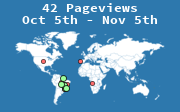Social rights and mental health: an ethnographic analysis of the gypsy community in Aurilândia-GO.
uma análise etnográfica da comunidade cigana de Aurilândia-Goiás
DOI:
https://doi.org/10.61541/e1kwg065Keywords:
gypsy people, social rights, racism, mental healthAbstract
This article emerges from the scarcity of studies on the impacts of racism on the mental health of the gypsy people. Accordingly, we present a segment of empirical research conducted within the gypsy community in Aurilândia-GO, adopting an ethnographic approach to investigate how racism affects the health of this population. Theoretically, we engage with the work A cor do inconsciente: significações do corpo negro (The color of the unconscious: meanings of the black body) by Isildinha Nogueira (2021). The research draws on primary and secondary sources, employing interviews, open conversations, and participant observation. We sought to understand how the gypsies perceive their ethnic identity and mental health, while also addressing issues related to labor and the educational system. The analysis considered life histories, accounts of the past, present experiences, and uncertainties about the future. The findings reveal an intrinsic relationship between the racism experienced by the gypsy people and the development of mental health disorders. This reality demands state intervention to implement specific public policies that respect the cultural and historical particularities of this group. Such policies should promote social inclusion and provide appropriate care for a community historically marginalized and rendered invisible within Brazilian society.
References
BOURDIEU, P. A distinção: crítica social do julgamento. Tradução: Daniela Kern; Guilherme J. R. Teixeira. São Paulo: Edusp: Porto Alegre, RS: Zouk, 2007.
CARDOSO DE OLIVEIRA, R. O Trabalho do Antropólogo: Olhar, Ouvir, Escrever. São Paulo, Revista de Antropologia, v. 39, n. 1, 1996.
DUSSEL, E. Método para uma Filosofia da Libertação. Tradução: Jandir João Zanotelli. São Paulo, SP: Loyola, 1986.
NOGUEIRA, I. B. A cor do inconsciente: significações do corpo negro. São Paulo: Perspectiva, 2021.
PEIRANO, M. Etnografia não é método. Horizontes Antropológicos, Porto Alegre, v. 20, n. 42, p. 377-391, 2014.
QUIJANO, A. Colonialidade do poder, eurocentrismo e América Latina. In LANDER, E. (org.). A colonialidade do saber, eurocentrismo e ciências sociais - perspectivas Latinoamericanas. Buenos Aires: CLACSO, 2005.
SILVA, P. C. S.; FIGUEIRA, L. E. de V. “Vai além do nomadismo”: processos identitários, povos ciganos e o Estado na prática legislativa. Antropolítica - Revista Contemporânea de Antropologia, Niterói, v. 54, n. 1, 1 abr. 2022.
________________________________. “Nós somos os primeiros a serem acusados”: um estudo sobre o “anticiganismo” e as permanências coloniais no direito brasileiro. Rev. Faculdade de Direito, 2021, v. 45: exxxxx
URIARTE, U. M. O que é fazer etnografia para os antropólogos. Ponto Urbe, n. 11, São Paulo, p. 1 - 13, 2012
Downloads
Published
Data Availability Statement
Os dados não foram disponibilizados.
Issue
Section
License
Copyright (c) 2025 Revista de Direito - Trabalho, Sociedade e Cidadania

This work is licensed under a Creative Commons Attribution-NonCommercial-NoDerivatives 4.0 International License.
Todos os trabalhos que forem aceitos para publicação, após o devido processo avaliativo, serão publicados sob uma licença Creative Commons, na modalidade Attribution-NonCommercial-NoDerivatives 4.0 International Public License (CC BY-NC-ND 4.0). Esta licença permite que qualquer pessoa copie e distribua a obra total e derivadas criadas a partir dela, desde que seja dado crédito (atribuição) ao autor / à autora / aos autores / às autoras.








